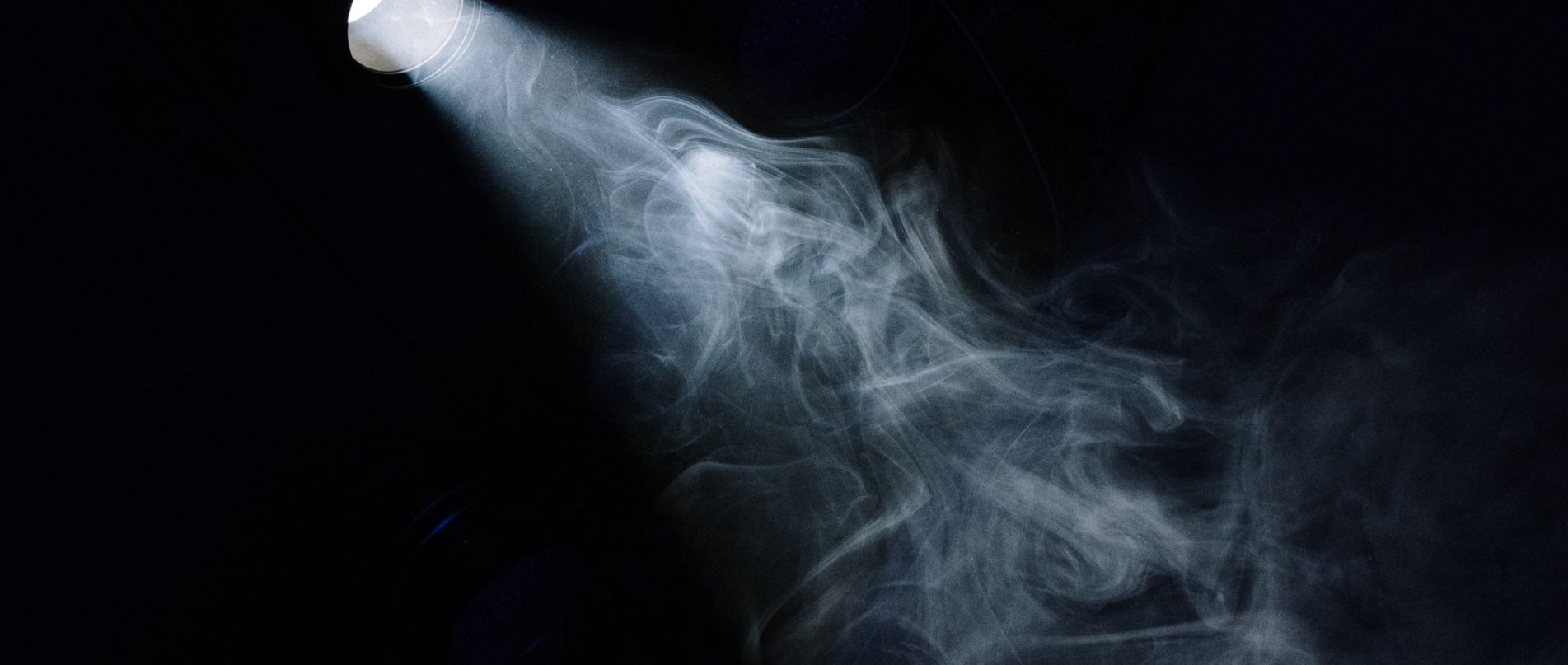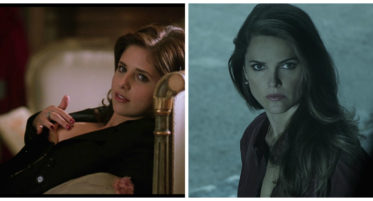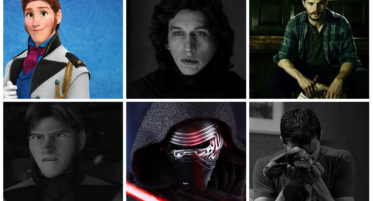
Prompt Images
“How would you describe yourself? In a word or two?”
You would think it would be a simple question, a softball as they call it in PR circles. We spend our whole lives within the same skin, carrying the same brain, unable to shed any more of it than skin cells, hair follicles, and tears.
If there is one thing we should know more than anything in the world, it is who we are.
If there is anything we should be able to do in the world, it’s to offer a few descriptors of ourselves. What we like, what we don’t like. Our best characteristics, the things that make us tick. The experiences that have shaped us, be they with the tender hands of happiness, or the rough, frigid grip of grief.
And yet it catches me like a sharpened silver hook in a fish’s gill just as it did in Year 2 when my teacher posed the same question. I wasn’t sitting under the hot, white lights of a television set then, but I felt the heat nonetheless, pooling at the back of my knees beneath my navy tights, boiling under the straps of my plaid jumper. It was as if I was producing my own tropical humidity, and I never fared well in humidity.
“Describe myself?” I asked, and the teacher, Ms. Henri, nodded, her lips stretching into a smile.
“Yes,” she said. “What do you want us to know about you? Help us get to know you.”
Her explanation just made the question itself more confusing. Although I was only six, I understood to some extent that people knew who I was. It was a hard concept not to grasp when nearly everywhere we went, we were met by crowds lining cordons and complete strangers offering a wave just as easily as a bouquet of flowers or a stuffy.
It wasn’t normal, I knew that then.
I was an observer and as such, I paid attention to the other people around me, particularly my classmates who shuffled to and from the doors of a school with little fanfare, the only security found in the clasp of their parents’ hand. That was normal.
In my Lilliputian desk, I scanned the faces of the normal. What was there to describe that they didn’t already know? More specifically, how did I define myself other than what they already knew?
I couldn’t say. I stuttered, tripping over a couple of words. Titters of laughter followed, silenced by the narrowing of Mrs. Henri’s gaze. My internal thermostat clicked up at least ten degrees, and the training I had been given since I could speak kicked in. I finally understood.
I picked and chose details to share about. I have a brother named Liam and a sister named Meri, but not that I almost had a baby brother named Georgie. That I liked to read, and chase my dog, Winston, in the garden, but not that he was my sole friend. That I loved to eat chocolate and lick frosting off spoons, but not that I was allergic to blueberries. That my favorite color was sky blue, but not that it was because I wished to fly away among the clouds like I was Mary Poppins.
Around me, my fellow pupils smiled and laughed and eased, which was the point.
I was giving them what they wanted.
Growing up in the public eye like a child star, people become intimidated by you without knowing you, reputation preceding. But sharing personal quirks and factoids, true or not, tends to disarm people, if not endear them to you一when it’s the right ones. It normalizes you as much as a royal second in line to the throne can be normalized.
At least that’s what I’ve been taught, through words and actions.
Later, I realized that was most likely Mrs. Henri’s intention when she asked her question一not me lying about my love of frosting, but making me more like one of the kids in the other desks. I’m sure it’s the intention of the star reporter in front of me, Gwenyth Charles, trying to shine a light of humanity on someone who was recently caught on camera, engaging in behavior that was less that of a future queen, and more that of a 21-year-old woman being a 21-year-old woman.
Or, more accurately, more that of a 21-year-old who was trying to feel again after being numb for the past year-and-a-half. More that of a girl who can’t bear the touch of anyone, because each of her nerve endings retains the memory of his touch, like the act was still in progress.
But, that’s what I’ve been taught not to share. Expressly.
“It would take too much damage control, and the people don’t have the bandwidth for that right now,” my grandmother said curtly after my parents had told her and my grandfather what happened. I was bruised, aching with every move, shellshocked, and with her comment, I was speechless. It was as if my trauma was more shameful than the cheating scandal or errors in judgment other family members had plagued us with earlier that year.
As if telling the truth was more harmful than what had happened itself.
As if I was something they could hide between $5,000 curtains and palace walls.
As if moving on from this was an option.
Wounds need air to heal. But strangled, I bled out every day until all sensation drained out of me, too.
Up until my one night out, I was nothing but a mannequin: Pretty and poised and hollow. In that way, I was everything they wanted me to be.
They had carved out that role for me before I was even conceived, before my parents could even imagine what I would look like: Dad’s lemons waves or Mum’s straight copper stands; amber or sea green eyes; freckles or tanned skin. Truthfully, it was set before they met, before Mum herself was born.
Like her, like my grandparents, I was born to play the game, to edit myself into the smooth-edged, enamel-glazed version of myself. Not that they had termed it as such when I was old enough for them to explain it, caught between the age of beginning to notice persistent camera flashes and later realizing they were far from a regular part of most if not nearly all people’s lives.
“Now, you have to smile and wave at the crowd,” Mum said to me one day as she smoothed down the front of my buttermilk yellow dress. Through the rectangular panes of the French doors, over the top of the balcony beyond, I could see the street filled, its contents ebbing and flowing like a wave. Except, rather than the navy blue of the sea, it was a mix of colors, reds, whites, blues, greens, yellows, and purples. Nearly a proper rainbow.
It was nearly picturesque, too, if you ignored the tears leaking from the creases of Mum’s eyes, or the shouting match that had just transpired between her and one of her siblings a few corridors down.
“But you’re sad,” I said, my tiny fingers touching the saline running down her face. “Why would we smile?”
She blotted at her own tears, the tips of her white gloves coming away splotched with the black of mascara. “Because that’s our job. You’ll understand one day.”
I didn’t. I don’t. Or, I do, but I don’t believe in it.
To understand is to tell ourselves our perfect image is what the people want to see. The people are the answer to the question of our lives, the who we do this for. With one important caveat.
Our existence depends on the people, but theirs does not depend on us.
We are like wisteria vine rooted into the façade of a home: there to add class and character, but serving little structural purpose. Living while attached to the house, but dying as soon as it’s cut free. The only escape.
If we were truthful with ourselves, we would know that the real answer to the question to our lives, the people we do all of this, all the charades for, is ourselves. It’s survival.
It’s also bullshit.
“Princess Ingrid, how would you describe yourself?” Gwyenth asks one more time. Her eyes search mine, a touch concerned. She has every right to be.
I look into the camera lights, and plaster on my most conciliatory smile. Who am I? In the most truthful of terms?
“An actor.”



